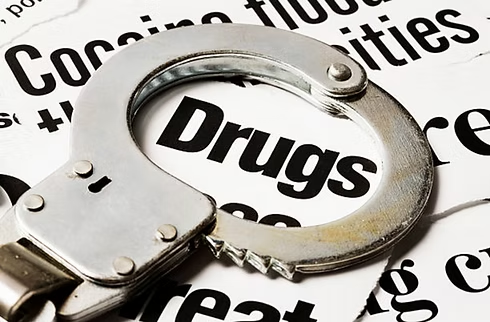From simple possession to federal trafficking, we fight to protect your future and freedom.
For more than a decade, I’ve defended Oregonians in every county against drug allegations. By staying on the cutting edge of laws like Measure 110 and leveraging constitutional challenges to searches and seizures, I secure life‑changing results that preserve careers and families.
Get in touch with us now
Charge Reductions & Dismissals – We use Measure 110 reclassification to lower or eliminate personal‑use possession charges. Treatment‑First Outcomes – Diversion and specialty drug courts keep you out of jail and on a path to recovery. . Treatment‑First Outcomes – Diversion and specialty drug courts keep you out of jail and on a path to recovery.

We review dates and quantities to re‑classify eligible cases as mere civil violations.
Motions to suppress evidence obtained without probable cause or valid warrants.
Guidance through treatment programs that dismiss charges upon successful completion.
Scrutinizing lab testing, weights, and chain of custody to dispute alleged substances.
Expert witnesses and forensic audits expose weak links in large‑scale grow or trafficking cases.
Defense experience in U.S. District Court, including ACCA enhancements in gun‑drug cases.
Share your story; we explain possible charges and defenses.
Dashcam, lab reports, and warrant affidavits examined for flaws.
File suppression motions, negotiate diversion, or prepare for trial—whichever protects you best.
Post‑case guidance on record sealing or expungement when eligible.
Oregon drug crime laws are governed by state statutes that outline various offenses related to controlled substances. Possession, distribution, manufacturing, and trafficking of drugs are considered criminal activities in Oregon. The severity of penalties varies depending on factors such as the type and quantity of the controlled substance involved, prior convictions, and the specific circumstances of the case.
Oregon has also taken steps towards drug decriminalization, treating possession of small amounts of certain drugs as a civil violation rather than a criminal offense. This approach focuses on addressing drug addiction through diversion programs and treatment rather than punitive measures. However, it’s important to note that more serious drug offenses can still lead to significant criminal penalties, including incarceration and fines. Consulting with a knowledgeable drug crime lawyer in Medford OR is crucial to understand the specific laws that apply to your case and to navigate the legal system effectively.
Oregon has stringent laws in place to address drug trafficking, which involves the illegal transportation, distribution, or sale of controlled substances. Drug trafficking is considered a felony offense in this state. Oregon categorizes controlled substances into different schedules based on their potential for abuse and medical use. Trafficking offenses involving Schedule I and II drugs, such as heroin, cocaine, methamphetamine, and LSD, generally carry more severe penalties compared to offenses involving drugs in lower schedules.
Penalties for drug trafficking in Oregon can include substantial prison sentences, ranging from several years to decades, depending on the circumstances of the case. Fines can also be imposed, with amounts varying based on the type and quantity of drugs involved. Additionally, Oregon has adopted Measure 110, which reclassified personal possession of small amounts of drugs as a civil violation rather than a criminal offense. However, drug trafficking offenses are still prosecuted as serious criminal offenses.
If you’ve been charged with a drug crime in Oregon, here are some key steps we recommend taking:
If you have to go to trial for a drug crime in Oregon, it means that the prosecution has decided to pursue the case and present evidence against you in court. During the trial, the prosecution will attempt to prove your guilt beyond a reasonable doubt by presenting evidence, such as drugs, witness testimonies, surveillance footage, or expert analysis. Your defense attorney will challenge the prosecution’s case, cross-examine witnesses, present evidence in your favor, and argue for your innocence or a lesser charge. The trial process typically involves jury selection, opening statements, presentation of evidence, witness testimonies, closing arguments, and jury deliberation. The judge or jury will ultimately make a decision regarding your guilt or innocence.
Remember that the burden of proof lies with the prosecution, and you are presumed innocent until proven guilty. Your defense attorney’s role is to vigorously advocate for your rights, challenge the evidence presented, and create a strong defense strategy tailored to your unique case.
Oregon imposes penalties for drug crimes based on the type of offense, the specific controlled substance involved, the quantity, and other factors. Below is a general overview of the penalties for drug crimes in Oregon:
01. Possession
Possession of controlled substances, including drugs like marijuana, cocaine, methamphetamine, heroin, or prescription drugs without a valid prescription, can result in misdemeanor or felony charges. Penalties may include fines, probation, drug treatment programs, and, in some cases, incarceration.
02.Distribution and Trafficking:
Oregon treats drug distribution and trafficking as serious offenses. The penalties vary depending on the type and quantity of drugs involved. Trafficking offenses generally result in felony charges and carry substantial prison sentences, ranging from several years to decades, along with significant fines.
03.Manufacture or Cultivation:
Manufacturing or cultivating controlled substances, such as methamphetamine or marijuana, can lead to felony charges. Penalties may include lengthy prison sentences, substantial fines, and the seizure of assets related to the drug operation.
04.Prescription Drug Fraud:
Illegally obtaining or distributing prescription drugs, such as opioids or benzodiazepines, can result in criminal charges. Penalties may include fines, probation, drug treatment, and imprisonment.
If drug crimes occur within certain designated areas, such as schools, parks, or public housing zones, enhanced penalties can apply, leading to more severe consequences upon conviction.